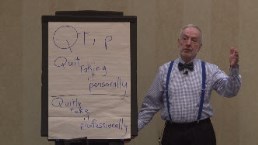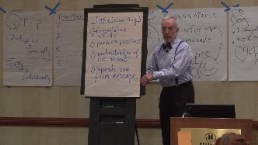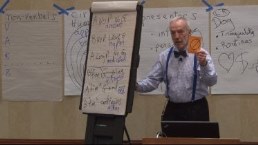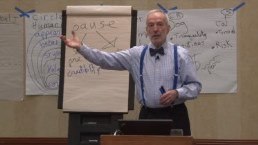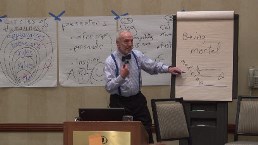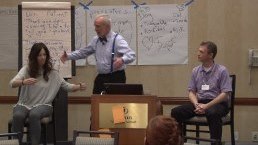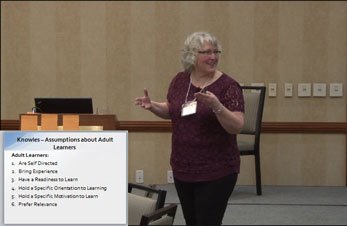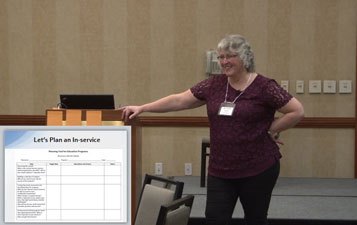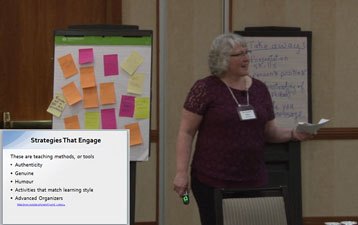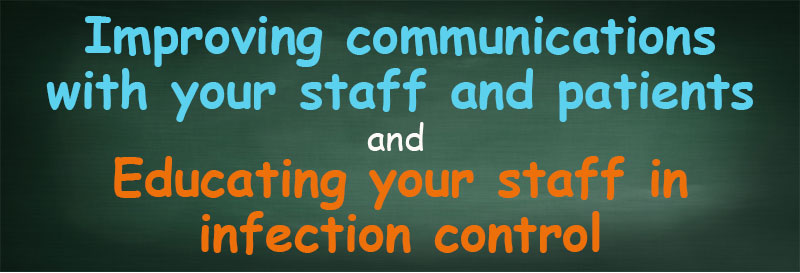
Improving communications with your staff and patients
(Morning Workshop)
Handouts and Resources
- Presenting Effectively and with Ease (8-page handout)
- Michael Grinder’s website (you can sign up for the daily tips here)
- Quick-reference bookmark (JPG for quick view, or PDF to print double-sided)
- Circles of Humanness (3-page PDF)
Videos
Videos from the day are now available! Click on the thumbnails below to view the individual videos, or you can access the whole set here. Please note: the videos will display better in Google Chrome than in Internet Explorer.
About the Workshop
We all understand how incredibly important communication is in our every day lives, but most of us are not consciously aware of most of what is being non verbally communicated within our communications. Raising your Non Verbal IQ™ will open a whole world to you and give you an incredible edge in being an effective communicator by increasing your ability to recognize, label, predict the effect, and respond to non-verbal patterns of communication. You will be surprised by the simplicity and power of these techniques!
The workshop will focus on communicating to staff and patients, including how to deliver unwelcome information without being an unwelcome presence in your facility. These skills are transferable to other areas of work and life, too.
About the Presenter: Michael Grinder
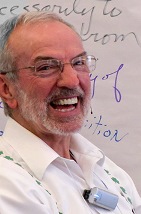
Michael Grinder is a master of the power of influence, which includes non-verbal communication, non-verbal leadership, group dynamics, advanced relationshipbuilding skills, and presentation skills.
Michael teaches others how to use influence verbally and non-verbally. If one manages for the sole outcome of gaining compliance, then one is operating from power. We want to operate from influence. The power template is short-term, focuses on the issues level of the communication, and is results-oriented. Influence, by contrast, is longer term, focuses on the relationship level of the communication, and is more process-oriented.
Michael has spent his life studying, dissecting, and teaching the complexity that underlies all communication. He has developed unique, new techniques in non-verbal communication that are rich in practical skills, and can transform and improve all professional and personal relationships. He was personally trained by two well-known experts in the field of communication: Carl Rogers, the wellspring of rapport and relationships, and Michael’s brother Dr. John Grinder, co-founder of Neuro Linguistic Programming. Michael is the National Director of NLP in Education. He and his wife Gail live in Battle Ground, Washington, which is across the river from Portland, Oregon.
You can read more about Michael Grinder on his website.
Educating your staff in infection control
(Afternoon workshop)
Handouts and References
- Staff Education Workshop – Slides
- Staff Education Workshop – Handouts
- References and Additional Resources
- Teaching Perspectives Inventory
Videos
Videos from the day are now available! Click on the thumbnails below to view the individual videos, or you can access the whole set here. Please note: the videos will display better in Google Chrome than in Internet Explorer. You can look at this quick view of all the slides to see which video parts you’d like to watch.
About the Workshop
Most of you have to educate your staff… and many of you have to do it off the side of your desk, with limited time and resources. This workshop is designed to help you build engaging workshops that encourage learning through participation. The workshop will include the following topics:
- Adult learning theories: an overview
- Needs assessment: how to identify your staff’s educational needs
- How to plan an education session around this: learning objectives and lesson planning
- How to make the education interactive, engaging, and memorable
- Educational tools you can take away and use
- How to conduct an evaluation quickly and easily
About the presenter
Eleanor Elston, Infection Control Practitioner, Island Health
Eleanor Elston is a nurse by trade, and currently an Infection Control Practitioner from Victoria, who has a broad background in Adult Education. She has a Master’s of Education from the University of Calgary, specializing in Workplace Learning, and has held some varied teaching positions, including:
- Nursing Instructor at Camosun College, and Malaspina College, and the University of Victoria
- Paramedic Instructor at the Justice Institute of BC
- Clinical Nurse Educator for VIHA’s Professional Practice Office and Adult Day programs
- 10 years with UBC Continuing Studies teaching Education for Health Care Professionals
Eleanor’s philosophy of work is “work smart, work hard, and have fun!” This is reflected in her teaching practice, particularly the fun aspect.
.

